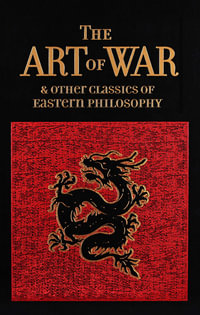Many thousands of Irish peasants fled from the country in the terrible famine winter of 1847-48, following the road to the ports and the Liverpool ferries to make the dangerous passage across the Atlantic. The human toll of "Black '47," the worst year of the famine, is notorious, but the lives of the emigrants themselves have remained largely hidden, untold because of their previous obscurity and deep poverty. In The End of Hidden Ireland, Scally brings their lives to light. Focusing on the townland of Ballykilcline in Roscommon, Scally offers a richly detailed portrait of Irish rural life on the eve of the catastrophe. From their internal lives and values, to their violent conflict with the English Crown, from rent strikes to the potato blight, he takes the emigrants on each stage of their journey out of Ireland to New York. Along the way, he offers rare insights into the character and mentality of the immigrants as they arrived in America in their millions during the famine
years. Hailed as a distinguished work of social history, this book also is a tale of adventure and human survival, one that does justice to a tragic generation with sympathy but without sentiment.
Industry Reviews
"The End of Hidden Ireland opens a window on a lost world in the process of becoming lost. Robert James Scally combines the labor of an archivist with the speculative verve of an historian of mentalities."--The Washington Post
"Well written and well researched, a distinct contribution to the subject."--Kirkus Reviews
"Scally's book is compulsively readable, an intimate and humane portrait of a society on the brink of dissolution."--Kevin Whelan, Royal Irish Academy, Dublin
"A beautifully written, deeply researched work of historical investigation that makes an important contribution to a true accounting of the Irish past... His book is a revelation."--Peter A. Quinn, author of Banished Children of Eve
"On the 150th anniversary of the Irish Famine, no memorial to the victims could be more fitting or more moving than Robert Scally's spectacular recreation of the life and death of the community of Ballykilcline. Painstakingly researched, lucidly written, his work provides a sudden and intimate access to a world and a series of individual lives cruelly destroyed during the terrible forties of the last century."--Seamus Deane, University of Notre Dame
"Professor Scally's meticulously researched book is a valuable addition to the growing body of work on the socio-political organization of rural life in Ireland in the first half of the last century. The publication of this book is a fitting memorial to the 500 or so Balykilcline tenants who, weakened by famine, packed their meager possessions in May 1848 and headed for America."--Luke Dodd, Director, National Famine Museum of Ireland
"This work is based on painstaking research into an extraordinary range of primary and secondary sources. Overall it is an outstanding piece of original research--a genuine contribution to Irish, British and U.S. social history."--William J. Fishman, University of London
"Robert Scally has penetrated more deeply into the heart of 'hidden Ireland' than any previous scholar, and the result is a lasting and compelling contribution to Irish history and to migration and peasant studies."--Kerby A. Miller, University of Missouri
"A highly original book whose impressive scholarship makes a significant contribution to understanding nineteenth-century Irish and North American history....This is microhistory at its best, using a small setting to expand knowledge of bigger events. It is also splendidly written and deserves a wide readership."--CHOICE
"Using an astonishing array of social history techniques and writing with the profound pity of a modern Villon, Professor Scally has united imagination and analysis upon the melancholy facts of a pre-famine Irish village."--Peter Linebaugh, University of Toledo
"Scally writes with respect, affection, wisdom, and sensitivity."--Journal of Interdisciplinary History
"[The book] does draw on a wealth of historical sources. But it is above all through the exercise of imaginative sympathy that Robert Scally brings these people to ife."--The Irish Times
"Scally movces beyond his meticulous scholarship, informed judgements and elegant style to reveal the 'secret world beyond Historical documents,' with a series of images that are both arresting and wrenching."--Irish Literary Supplement
"Scally sets out the background of the events in remarkable detail. There is an incredible amount of material from a wide variety of sources."--The Albion
"Scally's range of vision is substantial...[T]he author's handling of the available evidence is sensitive, balanced, and imaginative."--The Historian
"This remarkable community portrait, written in an elegant and accessible prose in a style sympathetic to its subject matter, proceeds beyond the econometric examination of pre-Famine Ireland espoused by Joel Mokyr...and the general account provided by Kerby Miller in his classic work..."--American Historical Review


























